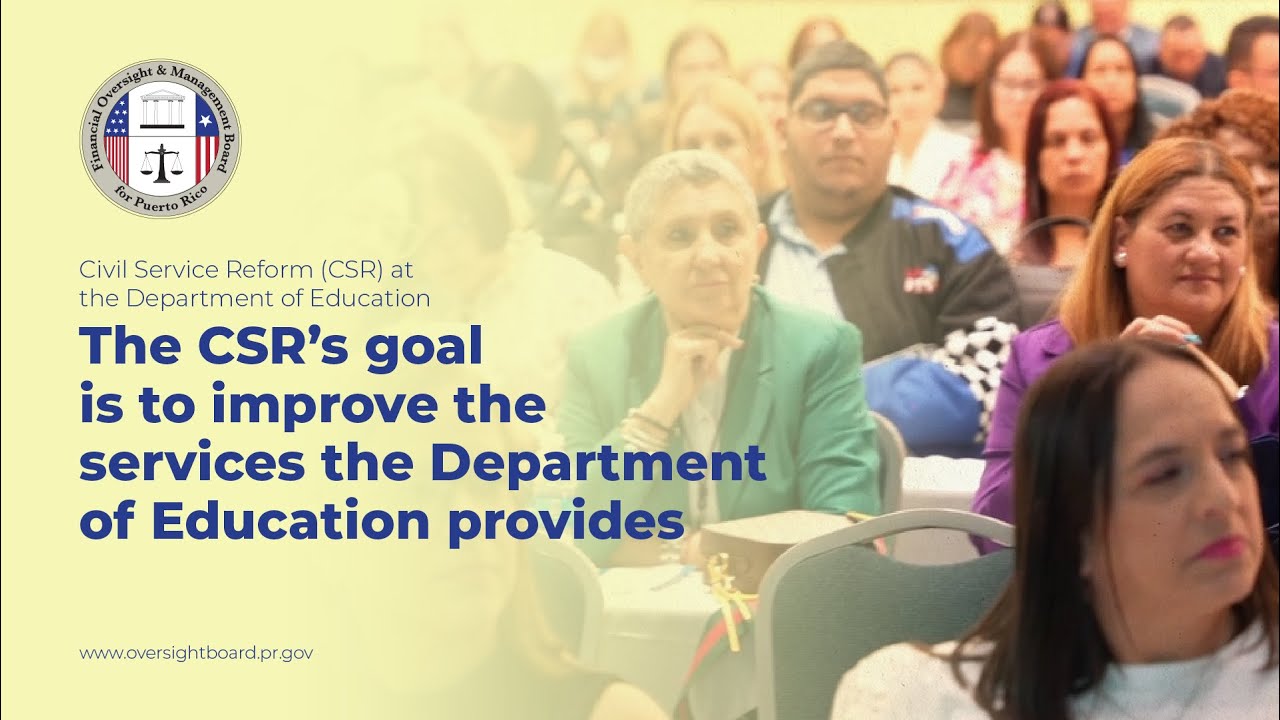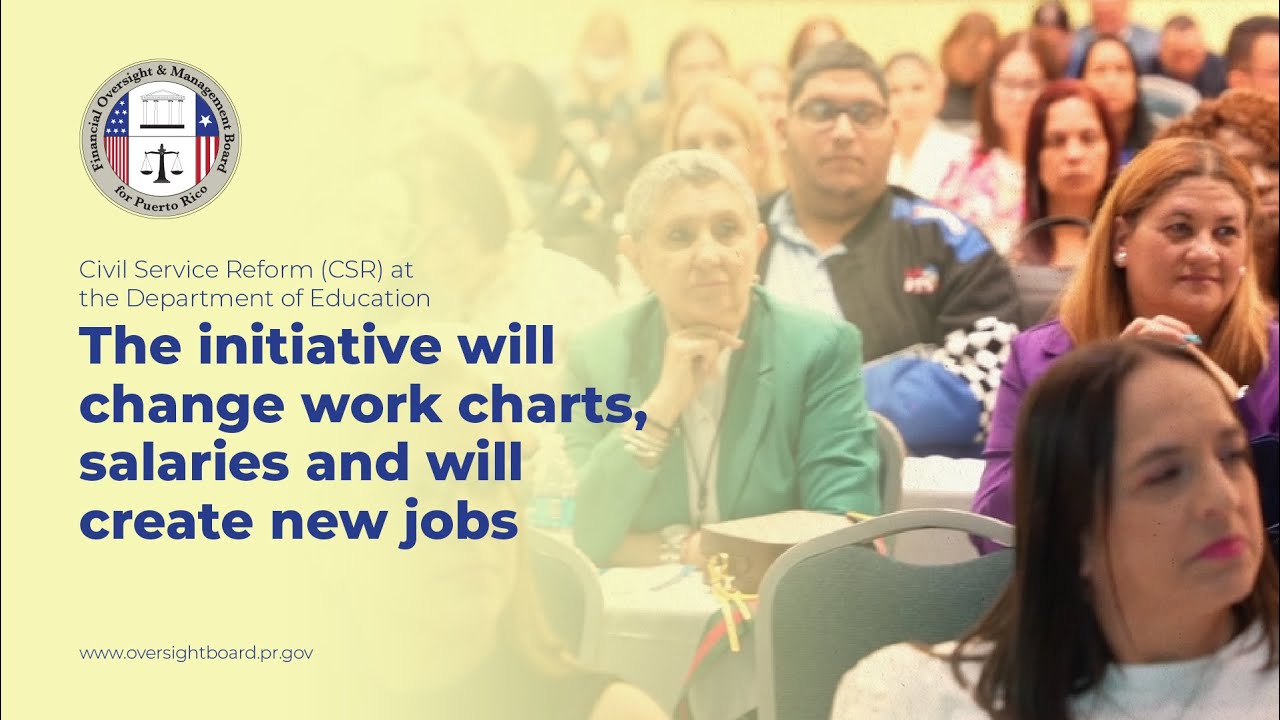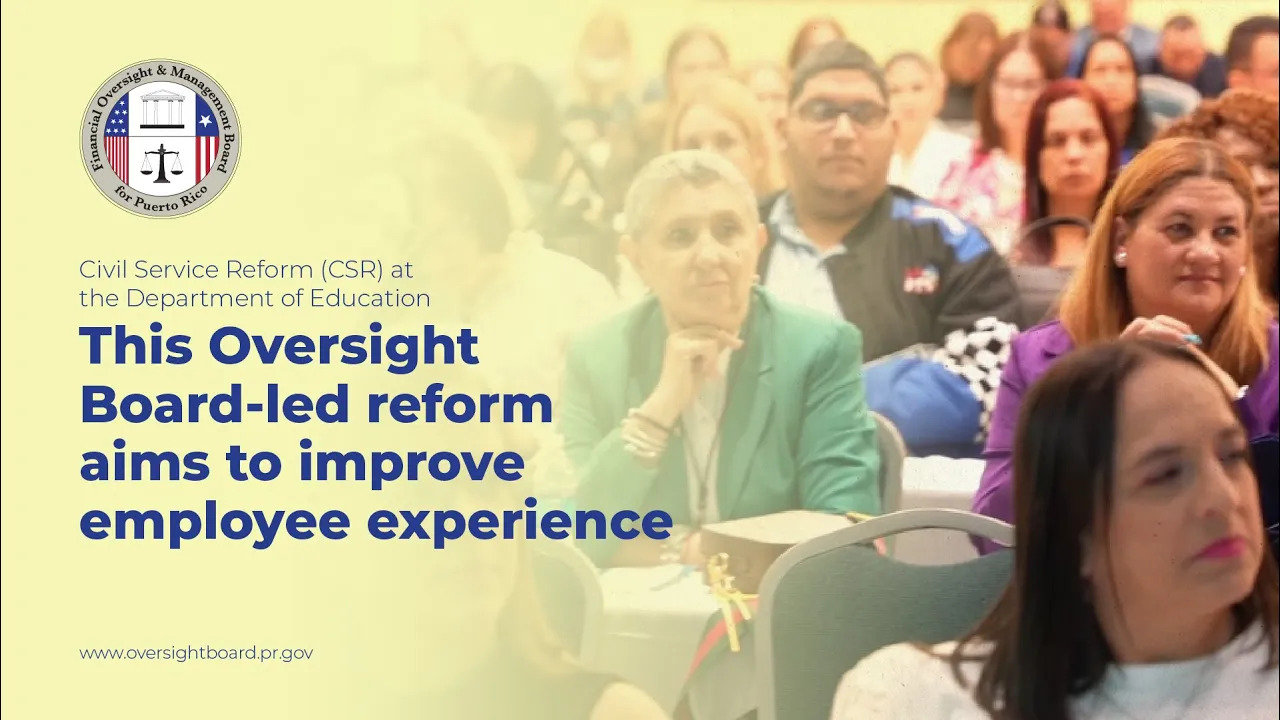
Civil Service Reform
News & Stories
Introduction
A capable, motivated civil service is the backbone of good governance and quality public service provision. A high-performing government requires employees who are well-trained and educated, fairly compensated, and effectively managed.
That is why the administration of Governor Pedro R. Pierluisi and the Financial Oversight and Management Board for Puerto Rico have made deliberate, strategic investments in a comprehensive Civil Service Reform (CSR) to improve governance and operational capacity across all agencies to strengthen and improve the way government works for the people. The CSR focuses on improving the experiences of public servants, so that they can professionally grow in their careers, learn through improved training, have a more positive work experience and, in turn, feel more motivated to transform their departments and provide the best services to Puerto Rico residents.
The Civil Service Reform
The Civil Service Reform Pilot
Given the administrative challenge of implementing a reform as comprehensive and complex as the CSR, a pilot approach has been adopted. Implementing small-scale pilots enables the government to test a complex reform before determining whether and how to implement it across all agencies. This approach fosters consensus-building and the identification of best practices, paving the way for a more effective implementation across all government agencies. A pilot project also allows the government to maximize success by analyzing a smaller-scale implementation of the reform and fine-tuning the reform program, identifying administrative and technical pitfalls that need to be addressed before a broader implementation.
The first CSR pilot program focused on accounting, finance, and IT departments at the Department of Treasury (Hacienda) and the Office of Management and Budget (OGP), spanning from July 2021 to September 2022. It encompassed salary adjustments for 76% of employees, proposed 112 new positions, reclassified 93 employees, and introduced skills-based evaluations, with 75% of employees expressing confidence in the system’s effectiveness.
In March 2024, a second CSR pilot program was launched to transform talent acquisition and management processes, with a focus on recruiting over 200 positions, including accountants, data scientists, and engineers, and testing an innovative skills-based talent management strategy. Further details regarding these pilot programs are outlined below.
Civil Service Reform Strategic Components
Organizational Design
What does this mean? An effective structure that takes into account where employees are needed and can provide value based on their capabilities to reach agency objectives.
Employee Evaluation
What does this mean? An employee evaluation system that permits employees to identify and communicate effectively their skill needs and desired areas of development.

Compensation
What does this mean? Reviewed and adjusted salaries to ensure that the government has compensation models based on market data that result in competitive, fair, and justifiable salaries.
Recruitment
What does this mean? A recruitment process and system that is effective and just in recruiting quality skilled talent that can breach gaps, work overload, and meet the emerging needs of civilians.
Civil Service Reform Key Accomplishments

1st CSR Pilot in the Department of Treasury and the Office of Management and Budget
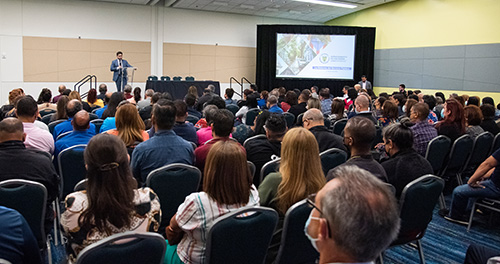
Successfully completed in September 2022, the first CSR pilot program was initiated in accounting, finance, and IT sectors at the Department of Treasury (Hacienda) and the Office of Management and Budget (OGP) in July 2021, due to the human capital challenges in public financial management and the importance of the timely publication of audited financial reports. As part of the pilot in Hacienda and OGP, 76% of in scope pilot employees received a salary adjustment at a cost of $2.6 million to ensure competitive salaries using a data-driven, market-based approach, 112 new positions for recruitment were recommended after the development of new organizational structures (e.g., a Center for Government Excellence in OGP and a Center for Customer Service in Hacienda), 93 employees were reclassified, and 98% of supervisors completed a skills-based evaluation of their employees. According to a survey, 75% of pilot employees expressed confidence in the effectiveness of the new skills-based employee evaluation system for identifying skill gaps.
1st CSR Pilot in the Department of Treasury and the Office of Management and Budget
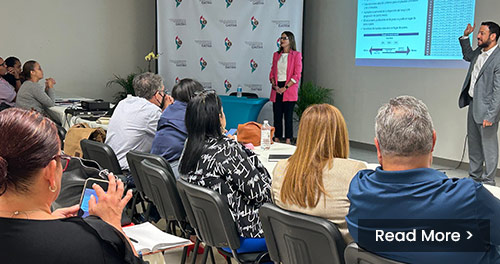
Implementation of a New Uniform Classification and Remuneration Plan of the Central Government:
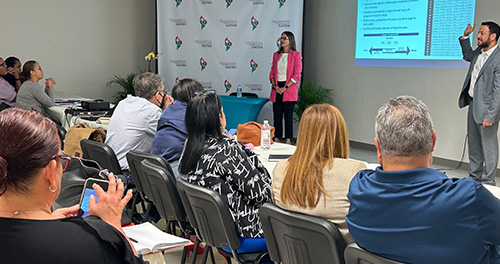
A new Uniform Classification and Remuneration Plan was implemented, retroactive to January 1, 2023, which establishes the base salary for employees working in central government agencies. It is the first time the government has used a data-driven, market-based methodology for competitive, fair and fiscally responsible salaries. The new compensation plan impacted approximately 55% of the close to 23,000 URP employees and brought the current salary of incumbent employees to the minimum of their respective new salary scales and employees with “hot jobs” to the midpoint of the scales. These salary adjustments resulted in an annual recurrent cost of $104.7 million, marking a 14% increase in the annual payroll expenditure.
Implementation of a New Uniform Classification and Remuneration Plan of the Central Government:

Talent Acquisition and Talent Management CSR Pilot
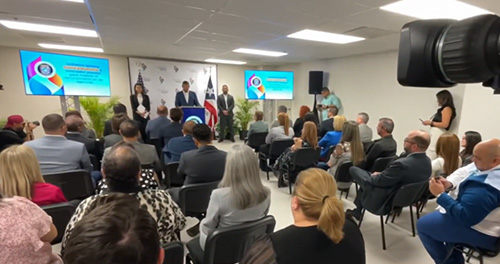
In March 2024, the Government of Puerto Rico launched a new and innovative pilot plan that seeks to reform talent acquisition and talent management processes using artificial intelligence. This pilot will undergo evaluation to allow for adjustments before its application to the entire government. These new processes have been developed to ensure the government has an agile and flexible recruitment system to attract and retain the best talent. The agencies participating in the pilot are the Office of Management and Budget (OGP), Department of Treasury (Hacienda), Office of Administration and Transformation of Human Resources of the Government of Puerto Rico (OATRH), Department of Economic Development and Commerce (DDEC), Institute of Forensic Sciences (ICF), Puerto Rico Innovation and Technology Service (PRITS), and the Department of Education (PRDE). In total, the Government will be recruiting more than 200 positions through this new pilot process, including accountants, data scientists, public policy analysts, information system specialists, budget and purchasing analysts, engineers and project managers for the permitting area. This Pilot Plan also includes a new skills-based talent management strategy focused on maximizing the development growth opportunities of employees over time. With this, Puerto Rico becomes the first state and local public sector jurisdiction in the US, and one of the first in the world, to formally introduce a skills-based talent acquisition and talent management strategy using artificial intelligence.
Talent Acquisition and Talent Management CSR Pilot
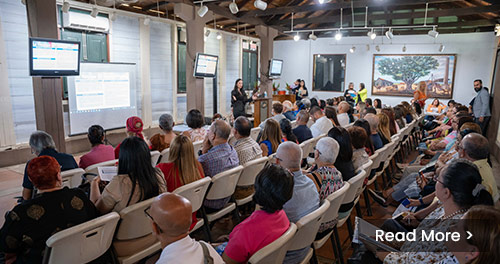
Civil Service Reform at the Department of Education
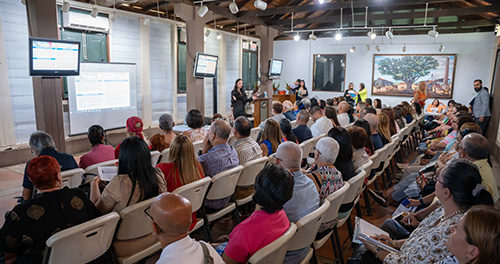
Given the success of the CSR within the central government, the Puerto Rico Department of Education (PRDE) requested to be added even though it is not covered by Act 8-2017, to improve the experience of the public servants at PRDE through the transformation of human resources. PRDE is undergoing broader CSR to build capacity among personnel (beginning with finance and accounting functions) to have a better back-office structure that supports the education system. The implementation of the CSR at PRDE impacts the following 10 organizational areas: Budget, Federal Funds (OFA), Finance, Office for Public School Improvement (OMEP), Payroll, School Food Authority (AEA), Purchasing, Associate Secretary for Special Education, IT (OSIATD), and the State Agency for Food and Nutrition Services (AESAN).
Civil Service Reform at the Department of Education
Civil Service Reform Timeline by Phases
1
February 2021 – May 2021
2
June 2021 – September 2022
3
Planning and Implementation of the New Uniform Classification and Remuneration Plan:
October 2022- March 2023
4
Design of the Future Recruitment Process, Talent Management, and Related Elements.
July 2023 – March 2024
5
(We are here)
March 2024 – June 2024
6
August 2024
Civil Service Reform Videos
Testimonials

“We have collaborated with the Financial Oversight and Management Board for Puerto Rico in developing the pilot project that began at the Puerto Rico Treasury Department and the Office of Management and Budget. Our objective is to keep the valuable personnel we have and, at the same time, attract new talent to public service in Puerto Rico.”
Lcda. Zahira A. Maldonado Molina
Former OATRH Director
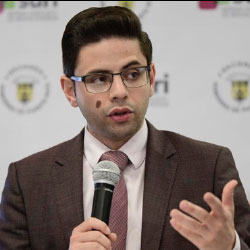
“This is an ambitious Civil Service Reform, with the implementation of the pilot project being only the beginning, and it requires the commitment of every one of us in the government. I put my trust in my working team and the results we have gotten today anticipate a positive future for the agency.”
Francisco Parés Alicea
Former Treasury Secretary

“We are confident that this reform will yield significant benefits for all components of the government, especially those workers who will receive economic compensation comparable to the private sector. We will also create new positions and bring more efficient services to citizens.”
Lcdo. Juan Carlos Blanco
Former OGP Director

“Today marks the first time in 25 years that salary scales and classifications have been revised and adjusted to reflect the capabilities and experience of Puerto Rico’s governmental employees. This is a historic moment for the Government of Puerto Rico, and we are proud to be a part of such success.”
David A. Skeel Jr
Former Chairman of the FOMB








